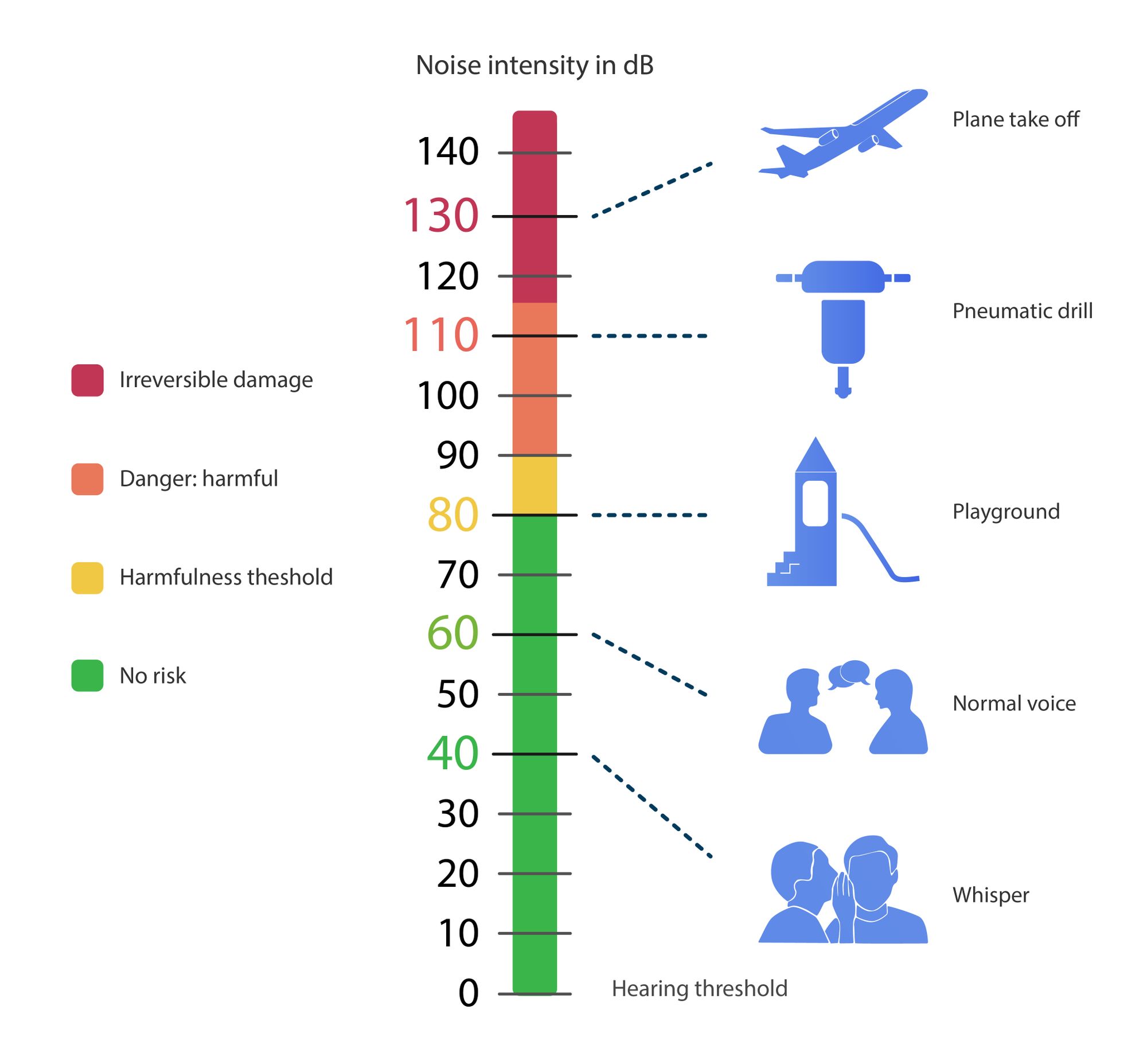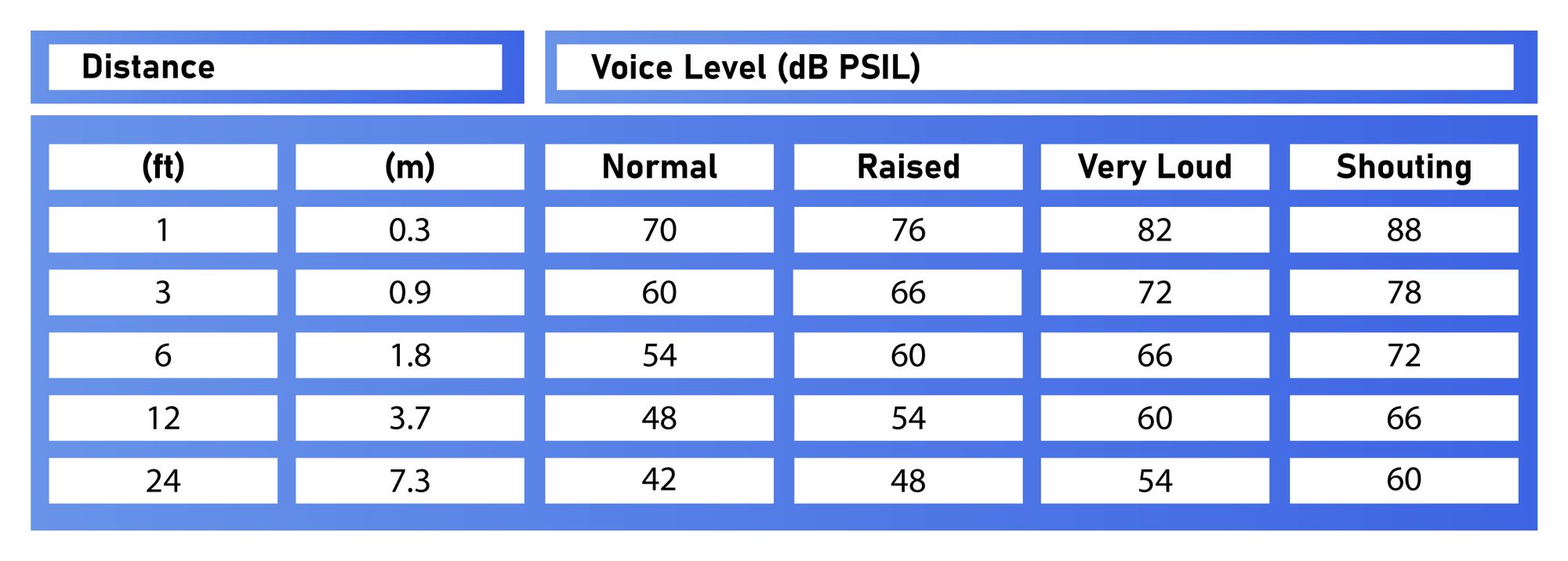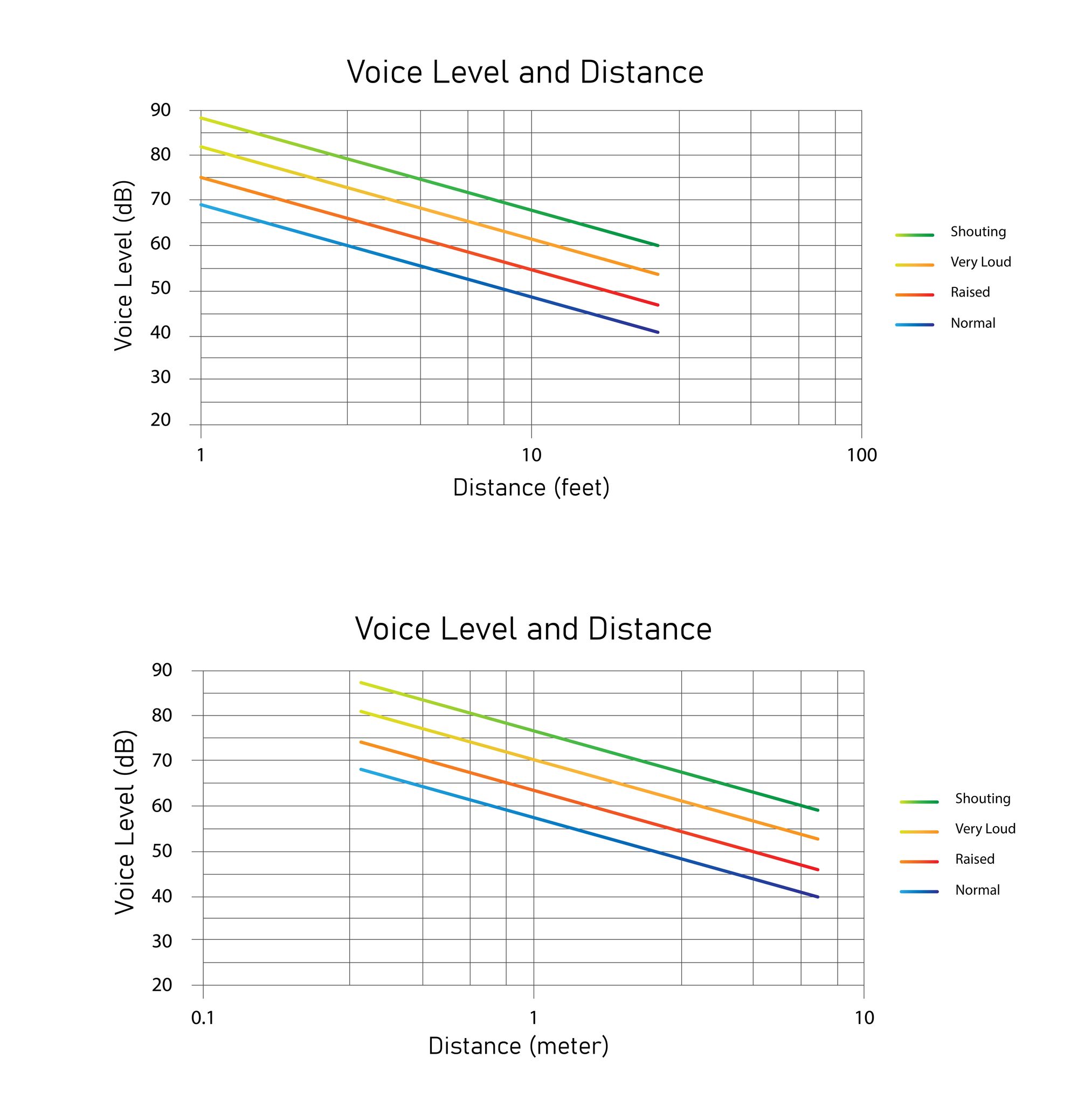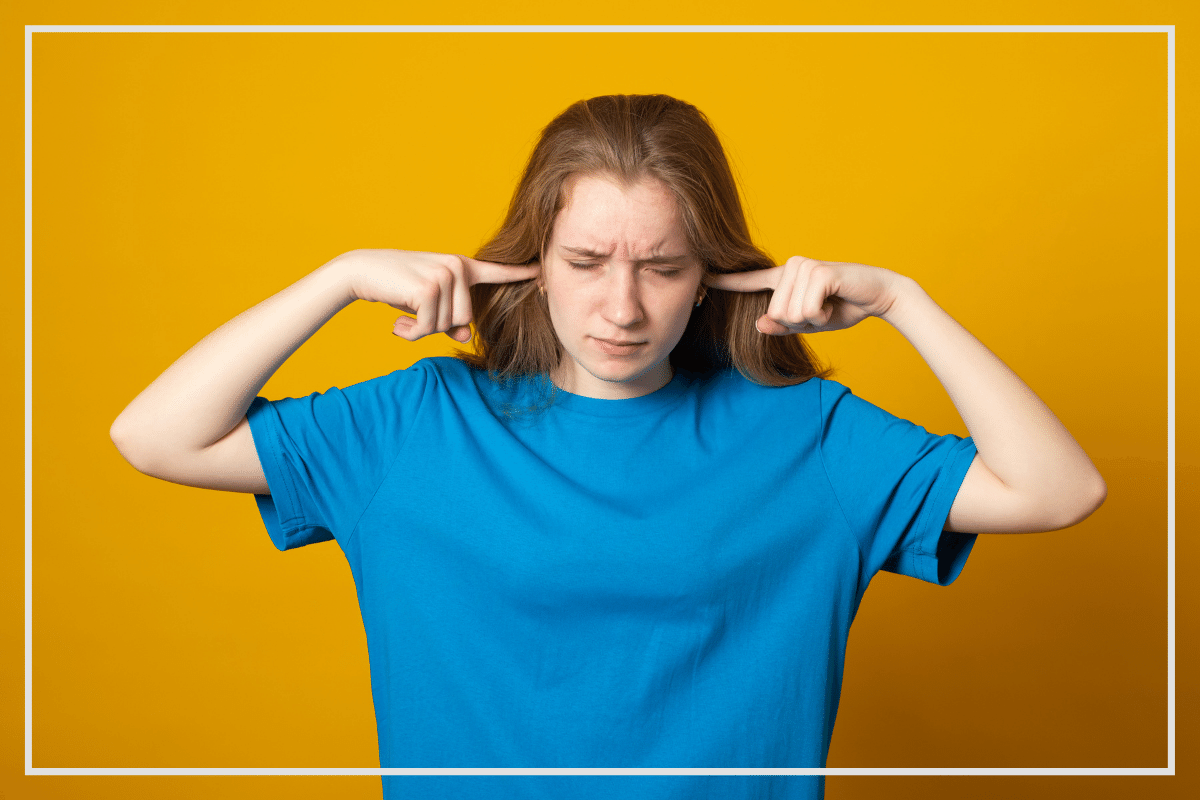- At How Many Decibels Does A Human Speak Normally
1.1 Average Decibel Level of Human Speech
1.2 Preferred Speech Interference Level - What Decibels Level Is Dangerous
- Voice Decibels Levels At Distance
3.1 Required Voice Levels At Distance - What Decibels Level Of Human Voice Is Safe
- How To Prevent Damage To Your Hearing
- Get More Info About Human Speech Decibels With Decibel Pro App
Wondering at how many decibels does a human speak normally? In this article, we’re looking into the average decibel level of human speech. Read on to find out everything you need to know about this topic.
At How Many Decibels Does a Human Speak Normally?
To answer the question ‘At how many decibels does a human speak normally?’, we will have to consider an average. This is because, as you surely noticed, not all people speak at the same level. Or at the same pitch for that matter.
Some speak in high-pitched tones, some in low-pitched tones. Some people almost whisper, while when some people speak, it seems more like they are screaming.
Average Decibel Level of Human Speech
The average decibel level of human speech is estimated between 55 and 65 decibels.
A whisper is considered the lowest decibel level of human speech. A whisper is between 20-30 dB. On the other hand, a human scream can reach decibel levels between 80 and 125 dB.
The decibel level of a normal conversation between people is around 60 dB and is considered a safe level for human hearing. The chart below shows different decibel levels and how dangerous they can be to human hearing:

The relative loudness of human speech and the different decibel levels a human can speak at depends on several factors. The most important factor affecting the decibel level of human speech is background or environmental noises.
As you can imagine, if you are speaking to someone in a quiet room, you will speak in a softer voice as there are no other noises you need to speak over.
On the other hand, in a loud room or an environment like a restaurant or a busy office, you will need to raise your voice to be heard by the other person.
Another factor influencing the answer to ‘At what decibel level does a human speak normally?’ is the distance between the people engaged in that conversation.
The further you are standing from someone, the louder you will have to speak for them to hear you properly.
Last but not least, the acoustics of the space can influence the decibel level a human speaks at. Some spaces can increase the decibel level, while others can dampen it.
Preferred Speech Interference Level
Preferred speech interference level (or, PSIL) is an acoustical parameter characterizing the frequency range that human hearing is most sensitive to. It is calculated as the arithmetic mean of the following octave bands: 500 Hz, 1 kHz, and 2 kHz.
Speech interference levels are used for measuring the extent to which background noise interferes with speech.
Interference with speech occurs when there is excessive background noise. It can lead to disruption when people communicate and to irritation and annoyance as people are unable to properly hear each other speak.
What Decibel Level Is Dangerous?
When we’re talking about the loudness of a sound, the human hearing range is between 0 dB and 140 dB. 0 dB is the human hearing threshold, while 120-140 dB is the threshold of pain.
Extended exposure to noise levels above 70-85 decibels is considered dangerous to human hearing. In work environments, exposure of over 8 hours per day to noise levels above 85 decibels is considered to lead to noise-induced hearing damage or loss. In general, in everyday environments, the recommended noise dose should not exceed 70 decibels over a 24-hour period.
Considering that the decibel level a human speaks normally is around 60, normal speech is not considered harmful noise.
Voice Decibel Levels at Distance
When you are speaking to someone, you will normally adapt your voice decibel level to the environment and the distance between yourself and the other person.
The more background noise you need to speak over and the further the other person is, the louder your voice decibel level will be.
Required Voice Levels at Distance
The rule of thumb when it comes to decibel levels and distance is that every time you double the distance, the decibel level drops by 6 decibels.
Here are a few examples of voice decibel levels depending on the distance:

Below is a chart showing the relationship between voice decibel levels and distance considering that:
- A normal voice level is between 60-70 dB
- A raised voice is between 65-75 dB
- A very loud voice is between 75-85 dB
- A shouting voice is above 85 dB

What Decibel Level of Human Voice Is Safe?
The normal decibel level of a human voice, between 55 and 65 dB, is considered safe as it is under the 70 decibels/24-hours or 85 decibels/8-hours recommended exposure limit.
However, the decibel level of a human voice can get much higher if that person is speaking in a loud voice and very close to your ears. Human shouting or screaming can be dangerous and can even become painful as decibel levels for screams can exceed 120 dB.
To make sure the decibel level of a human voice is safe and does not exceed recommended levels, you can use a decibels meter to measure it.
How to Prevent Damage to Your Hearing?

To prevent damage to your hearing, you should:
- Avoid Exposure to Loud Noise
To do this, you can limit your exposure, increase the distance between yourself and the sound source, or turn the volume down on your stereo or headphones. - Wear Hearing Protection
When you cannot avoid being exposed to loud noises above 85 decibels, consider wearing hearing protection. There are numerous models of earplugs, earmuffs, or noise-canceling headphones you can choose from. - Protect Your Overall Health
To prevent damage to your hearing and your overall health, you should stop smoking. Consuming tobacco products can cause hearing damage or hearing loss on top of multiple other health issues. - Protect Your Hearing Health
To protect your hearing health:
- prevent and treat wax buildup in your ears
- avoid using cotton swabs
- keep your ears dry to prevent infection
- take immediate action in case of warning signs like your hearing becoming muffled or losing your ability to hear people talking to you in a normal voice
- check and test your hearing regularly, especially if you work or live in a noisy environment (use an online or app-based hearing test, or visit an audiologist for an audiogram)
Get More Info About Human Speech Decibels with the Decibel Pro App
Decibel Pro is a sound level meter app you can download on your iPhone or iPad.
Using it, you can get instant decibel level measurement readings for human voices as well as tools, machines, or equipment. This way, you can protect yourself from dangerous noise levels and take appropriate measures to limit exposure.
The app also includes a hearing test you can take regularly from the comfort of your own home and identify any hearing damage issues early on and a noise dosimeter that can measure your daily exposure to noise.
To learn more about the Decibel Pro app, click here.



